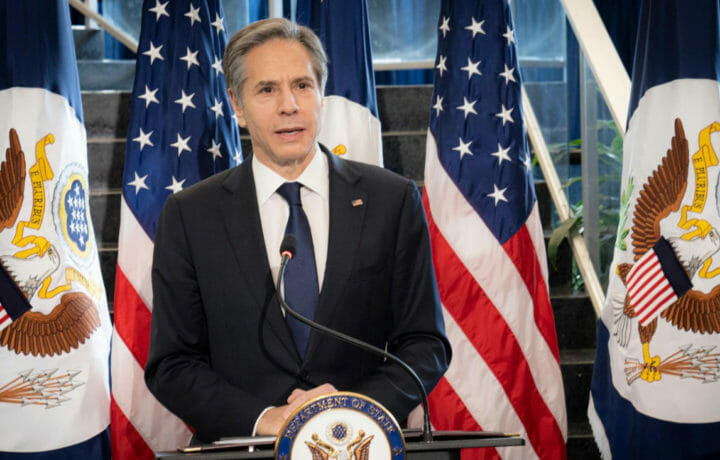Earlier this month, Secretary Blinken reaffirmed U.S. commitment to Israel’s security in a phone call with Israeli Prime Minister Benjamin Netanyahu. They discussed mutual interests, including expanding Israel’s regional integration and countering threats posed by Iran. Secretary Blinken reinforced U.S. continued support for policies that ensure freedom, security, and prosperity for Israelis and Palestinians alike.
The White House subsequently informed Jerusalem that Blinken may travel to the Middle East in October, as Washington continues diplomatic efforts to broker a normalization agreement between Israel and Saudi Arabia. The trip has not been finalized but the Secretary’s stops would include Israel, the West Bank, and Saudi Arabia. But is normalization a capable objective?
Last week marked the third anniversary of the Abraham Accords, signed on September 15, 2020. This bilateral agreement was mediated by the U.S. between Israel and the United Arab Emirates and Bahrain. Saudi has yet to sign, but the country has been moving in that direction.
In exchange for normalizing ties with Israel, Saudi Arabia has asked the U.S. for a major defense pact with arms deals and cooperation with the establishment of a civilian nuclear program on Saudi soil. In turn, Washington desires Riyadh to reduce its economic and military dealings with China and Russia.
Jewish Nationalism
With concerns over Prime Minister Netanyahu’s far-right Jewish nationalist elements within the government, some believe the U.S. should not pursue a Saudi-Israel normalization deal. With any accord, the Saudi deal would require significant concessions to Palestinians from Israel. Current members of the Netanyahu government will reject any deal requiring such concessions.
Regardless, the U.S. is still working toward a transformative deal, seeking progress on ‘other’ issues to get some form of agreement. Understanding the challenges, the Secretary of State knows the normalizing of diplomatic relations between Saudi Arabia and Israel is challenged by the Palestine issue.
Blinken recently stated, “Any of the efforts that are going on to improve relations between Israel and its neighbors cannot be a substitute for Israel and the Palestinians resolving their differences and having a much better future for Palestinians.”
Saudi Suspends Talks on Peace Deal with Israel
Riyadh has repeatedly stated that it “will not abandon” the Palestinian cause as it engages in negotiations with the U.S. Whether political brinksmanship or not, Riyadh withdrew from normalization talks over the weekend. Saudi Arabia informed the White House of its decision on Sunday, stating Netanyahu is “torpedoing any possibility of rapprochement with the Palestinians, and thus with the Saudis.”
Further complicating the issue, on Sunday evening Jews made a pilgrimage to the Temple Mount as part of Rosh Hashanah celebrations, under a heavy security detail. Saudi Arabia quickly condemned “Israeli occupation forces’ storming of al-Aqsa Mosque” early on Monday afternoon. The Saudi foreign ministry wrote, the Kingdom “condemns and denounces the storming of the Al-Aqsa Mosque by a group of extremists under the protection of the Israeli occupation forces.”
Biden to Meet with Netanyahu
Washington continues efforts to broker a normalization agreement, with Secretary Blinken still planning travel to the Middle East in October. Additionally, Prime Minister Netanyahu will meet with President Biden in New York, after the U.N. Meeting on Wednesday. U.S. National Security Adviser, Jake Sullivan, said Biden and Netanyahu will “discuss a range of bilateral and regional issues focused on the shared democratic values between the United States and Israel and a vision for a more stable and prosperous and integrated region, as well as to compare notes on effectively countering and deterring Iran.”




